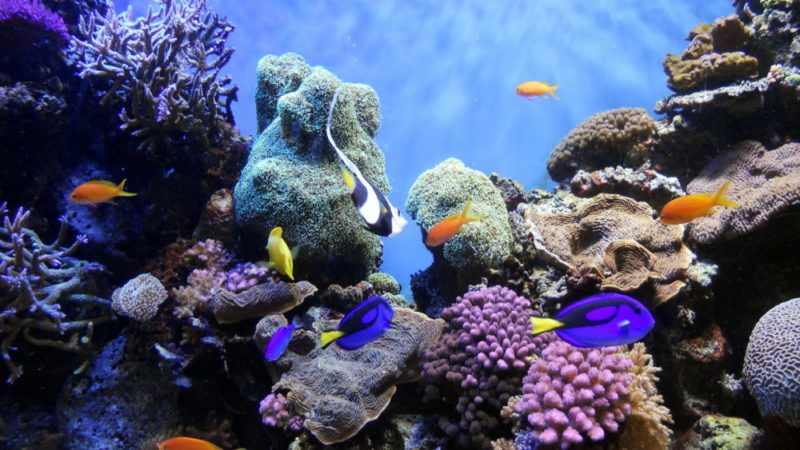From Houston Public Media:
“Save the corals” doesn’t have quite the cachet of “save the rainforest,” butAdrienne Simoes Correa says environmentalists ought to make it a rallying cry – and soon.
“Coral reefs are very important because they are the rain forests of the sea,” said Correa, a marine biologist at Rice University.
“They are these highly charismatic, beautiful places,” Correa said. “They cover less than 1 percent of the ocean floor, but they harbor more than 25 percent of all marine species.”
Corals around the world are currently experiencing a mass “bleaching event,” the third recorded since the 1990s. Coral bleaching occurs when corals become damaged or diseased by water that is too warm. The corals often react to the stressors by expelling their symbiotic partners, micro-algae that lend corals their various colors of brown, green or orange. Without the algae, the colors look white or bleached. Sometimes the corals and algae can recover, but often they die.
Corals can be hurt by higher water temperatures alone. But in many cases the temperatures are exacerbating local impacts on corals, such as fertilizer runoff, overfishing, and the dredging of nearby ports.
“When you add ocean warming in the hottest summer months, that can push coral colonies over the edge and cause them to die,” Correa said.
Correa conducts laboratory research on living corals in seawater tanks. She also scuba dives in the Florida Keys, where she and others study reefs to determine how much stress corals can take.
Although corals are in trouble, the research does reveal some good news, Correa said.
Studies show that many corals can handle a temporary increase in water temperatures, and recover, but often that occurs only if the corals are also not facing an additional stressor such as overfishing of a beneficial fish species, or local pollution.
“That’s really encouraging in terms of what can we do, because it shows us if we clean up now, if we clean up our act – and stop nutrient pollution and stop removing so many herbivorous fish – then coral reefs where disease is a problem, have a chance of getting better,” Correa said.
The nearest coral reefs to Houston, the Flower Garden Banks in the Gulf, are comparatively healthy.
Correa says that’s because they are farther off shore and deeper than typical continental coral reefs.














